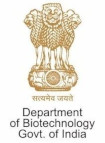Fundamental science has yielded a plethora of miraculous medical applications and yet, not enough. The concept of doing science with a medicine fulcrum, as K Vijayraghavan, Secretary, Department of Biotechnology (DBT) put it, is still an upcoming one and recently brought Cambridge University and the Institute of Stem Cell biology and Regenerative Medicine (InStem), together to launch a new research center dedicated to the cause of expanding the drug repertoire for human disease. Also involved in the initiative will be the other members of the Bangalore Biocluster, the Center for Cellular and Molecular Platforms (C-CAMP) and the National Centre for Biological Sciences (NCBS).
The new Center for Chemical Biology and Therapeutics (CCBT), at inStem, is dedicated to furthering understanding of diseases like cancer by combining methods from across genetics, chemistry, cell biology and biochemistry. It was formally inaugurated by Sir Leszek Borysiewicz, Vice-chancellor of Cambridge University, on September 17, in a ceremony at inStem in the presence of K Vijayraghavan, Secretary, DBT and academic dignitaries from Cambridge and senior scientists from the Bangalore Biocluster community including Satyajit Mayor, Director, NCBS & inStem, Upinder Bhalla, Dean, NCBS, Apurva Sarin, Head, Academics, NCBS, Ashok Venkitaraman, Director Medical Research Council, Cancer Cell Unit, Cambridge University.

The day also marked the signing of an MoU for a 'joint post-doctoral fellows program' that aims to attract scientists across nationalities to link ongoing collaborations and develop new ones at the Bangalore Biocluster and Cambridge University. The MoU, signed by Dr Jennifer Barnes, Pro-Vice-Chancellor for International Strategy for Cambridge and Satyajit Mayor for inStem, was presided over by K Vijayraghavan in the ceremony.
Cambridge University and NCBS have had an old and historic association with the founding director, the late Obaid Siddiqui, forging collaborations there. In subsequent years many NCBS and InStem faculty chose to study at Cambridge as well. The current developments follow an MoU signed between the institutions in 2011.
The new research center at inStem will pioneer approaches to create small-molecule tools that target novel classes of targets, with the goal of developing new treatment approaches.
Commenting on the inauguration of the CCBT, Sir Leszek Borysiewicz said, “We aim to work together to find ways of identifying missing targets for drugs for common diseases like cancer in new and effective ways. We see the collaboration in light of the genuine expertise in the Indian higher education sector.”
Borysiewicz, a distinguished cervical cancer biologist, explained that a single human cell has 200,000 possible targets for drugs, but about 190,000 targets still don't have drugs.
“The CCBT's long-term vision is to foster knowledge-driven therapeutic interventions for important diseases through fundamental new insights into disease biology,” said K Vijayraghavan, in his introductory address. “NCBS and inStem have the high quality platforms and researchers and the automatic take-off and landing systems in place to start this and set a good example for other institutions to follow.”
The CCBT links Satyajit Mayor, S. Ramaswamy and K Vijayraghavan and colleagues at NCBS and InStem in Bangalore, with Ashok Venkitaraman at Cambridge, who leads the Cancer Cell Unit of the UK Medical Research Council.
Venkitaraman's lab focuses on the difficult problem of deciphering the molecular mechanisms of cancer physiology and the events that lead to pathogenesis.
“The CCBT has been made possible with the support and engagement of Boris [Sir Leszek Borysiewicz] who has been a strong friend of India throughout his career as governor at the Wellcome Trust and other international bodies promoting global alliances versus infectious diseases and development of new methods for cancer vaccination,” said Venkitaraman.
Delivering a keynote seminar on the occasion, titled 'Cervical cancer: The beginning of the end or the end of the beginning?', Borysiewicz spoke about the molecular mechanisms of cervical cancer and emphasized the criticality of early diagnosis to stem the slowly-progressing disease.
“Cervical cancer is the second most common type of cancer world-wide and 250,000 women a year succumb to it – something preventable just by screening,” he said.
“In this challenge [of tackling cancer and other human diseases], Cambridge is a great friend and partner and this venture highlights the depth of the Cambridge-India relationship,” said K Vijayraghavan, summing up his address.
Beyond drug development, Cambridge University is also looking to work with leading Indian institutions in the fields of nanotechnology, material science, food security, food supply and ecological conservation.
Media coverage and relevent links:
http://www.cam.ac.uk/
http://www.mrc-ccu.cam.ac.uk/our_research/Ashok_Venkitaraman/
http://www.businessweekly.co.uk/academia-a-research/15915-cambridge-india-alliance-triggers-research-and-trade-bonanza
http://articles.timesofindia.indiatimes.com/2013-09-18/bangalore/42182092_1_sir-leszek-borysiewicz-cambridge-university-foreign-universities
http://www.telegraphindia.com/1130917/jsp/nation/story_17358573.jsp#.UR3SRRwvm1t
http://www.hindustantimes.com/India-news/NewDelhi/Cambridge-University-to-work-with-India-to-develop-drugs-for-cancer-other-diseases/Article1-1122149.aspx
http://www.siliconindia.com/news/general/Cambridge-Varsity-Collaborates-with-India-to-Develop-NonConventional-Drugs-nid-154402-cid-1.html
Assorted images for the graphic borrowed from Wikimedia Commons (http://commons.wikimedia.org/wiki/File:Diffuse_large_B_cell_lymphoma_-_cytology_low_mag.jpg, http://commons.wikimedia.org/wiki/File:Hairy_cell_leukemia_-_high_mag.jpg, http://commons.wikimedia.org/wiki/File:Adenocarcinoma_coli.jpg, http://en.wikipedia.org/wiki/File:Hodgkin_lymphoma_cytology_large.jpg). Syringe image by Armin Kübelbeck (http://commons.wikimedia.org/wiki/File:Injection_Syringe_01.jpg).











